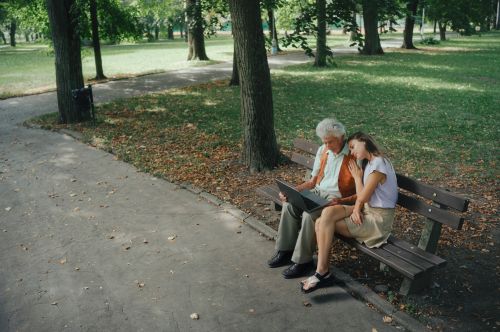

Grief tech has already transformed the way we grieve.

By Eryn Reyes Leong, J.D.
Attorney
“How would you feel about Daddy and me turning into ghostbots?”
I asked this peculiar question to my two children after reading about “grief tech,” the latest wonder child of artificial intelligence that allows the living to remain digitally connected to the dead through “ghostbots.” I explained to our children that they could feed our texts and emails to an A.I. platform that would create chatbots that mimic our language and tone and could respond to them through text after our death. Although the idea of death made them shudder, their response was immediate and firm: “We don’t want an A.I. mommy and daddy. It wouldn’t be real.”
Like our children, I have had a visceral response to the burgeoning realm of grief tech. As an attorney and a graduate student of theology, I could not help but envisage the intersections of law, theology and ethics. And as a Catholic woman who has experienced profound loss and grief in four consecutive miscarriages, these glaring intersections were heightened within my body. On a cerebral and bodily level, I found myself grappling with what personhood means in relation to grief tech.
With the creation of A.I., anthropomorphized chatbots are one critical example of how the rapidly advancing technology is testing the limits of the human condition. At this critical juncture, it is important for us, as people of faith and goodwill, to probe A.I.’s potential to divorce us from our humanity, with grief tech raising significant issues that bear on what it means to be human, specifically implicating our embodiment, relationality, finitude and death. Not only does grief tech try to divorce the human body from any concept of personhood, but grief tech’s endeavor to immortalize A.I. creations of the deceased stands in opposition to the Christian understanding of death.
Technology does not simply advance without the sanctioning of human beings. While human existence is vulnerable to grief and death, we must affirm the body as intrinsic to our humanity and to the death and resurrection of Jesus Christ, through which we enter into relationship with God, ourselves and one another. Our theological tradition—and specifically the work of Karl Rahner and Tina Beattie—can help us reflect on these imperatives and how they play out in the future.
READ ENTIRE ARTICLE AT AMERICA: THE JESUIT REVIEW


